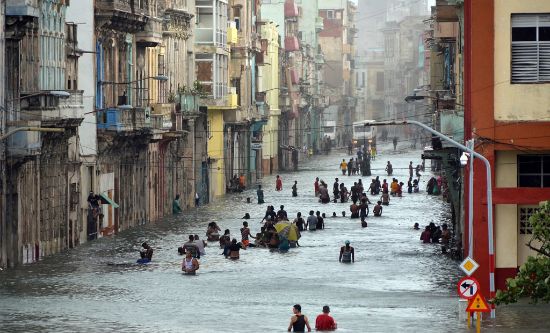
Cuba’s Life Task: Combatting Climate Change, DaniFilms production; directed edited and produced by Daniesky Acosta. Co-directed by Hugo Rivalta. Co-produced by Helen Yaffe. 55 minutes. 2021.
This new documentary, Cuba’s Life Task: Combatting Climate Change gives a detailed insight into Cuba’s remarkable ‘Tarea Vida’ (‘Life Task’) project: a hundred-year plan drawn up by the socialist government in collaboration with the Cuban people with the aim of protecting its population from the ever-increasing threats of climate change. The documentary was filmed in Havana, Cuba in summer 2021, and was screened as part of the COP26 Coalition’s People’s Summit in Glasgow.
Cuba contributes less than 0.1% of the world’s CO2 emissions, but climate change is already a deadly force that is having several tangible negative effects on the Cuban people. From disappearing coastlines and endangered marine life to increasingly dangerous and frequent extreme weather disasters such as hurricanes and drought, Cuba is experiencing the beginnings of a climate crisis wreaked by imperialism.
In response, the Cuban state has drawn up the ‘Tarea Vida’. The documentary shows us what is possible with a centrally planned economy, driven by the will of the people, and how drawbacks can be overcome through the collaboration and participation of a population dedicated to achieving socialism.
Cuban state officials, farmers, students and scientists explain how Tarea Vida works as we are guided through the organic farms, the bustling Havana centre and to the coast. Tarea Vida is characterised by the state assuming responsibility for the health and lives of the citizens. As law student Laura Rivalta says in the documentary, the new Constitution, written in 2019, recognised ‘the right to enjoy a healthy and balanced environment as a human right’. At the same time the citizens, through the municipalities and the provinces, inform all decisions of the state.
For example, coastal regions have become prone to flooding due to rising sea levels and are especially vulnerable to extreme weather disasters. The film takes us to the eroded coast, with its destroyed and abandoned houses. The Cuban government provides the opportunity of relocation at zero cost to the families. But many families, particularly fishing communities, who have for generations lived on the coast, are not ready to uproot their way of life and connection to the sea, despite the danger.
So instead, the government works with them to make sure the best possible evacuation services and contingency plans are in place as part of a national network of emergency response strategies which are organised and implemented in every neighbourhood, from the coasts to the mountaintops. This ensures no Cuban is forced into a decision they do not agree with, and that the preservation of human life is prioritised over anything.
Young people are regarded as vital to the life task. Environmental protection is integrated into school and college curriculums at every level, through the media, and through grassroots organisations. We are able to watch the work young people are doing as we join them on projects such as litter clean-ups, seeing how they are contributing and being trained in the plan that will span generations.
The Cuban people in the film send us a clear message: Berriz tells us, ‘what is our biggest problem? The worst problem is the [US] blockade. That is why we cannot advance faster.’ We are taken to an enormous rally of Cubans, gathering on the streets to defend their revolution, to reject US sanctions and interference. Amidst the music, a voice that is thousands strong rings out: “long live free Cuba!”‘
The US blockade on Cuba restricts access to technology and prevents collaboration with other countries. In this context, Cuba has had to develop its self-sustaining science and biotechnology sector. Cuba’s research on climate change and its effects (headed by the Ministry of Science, Technology and Environment) is cutting edge. There is a huge drive to move towards renewable energy production that is described by Luis Berriz, the president of CubaSolar. He stresses that by generating power very locally, thereby reducing reliance on imports of oil, Cuba’s emissions can be even lower.
Cuba recognises that, just like the socialist revolution itself, Tarea Vida is a work in progress. As Gloria Martinez of National Civil Defence tells us in the documentary: ‘we do not propose to give lessons to the world, but we do want to share our experiences.’ As Berriz puts it: ‘if Cuba achieves sustainable development and the rest of the world does not, we will all die anyway … Tarea Vida must be worldwide.’ We too must strive for a sustainable mode of production, for socialism. And to do so the example of socialist Cuba is as crucial as ever.
Annie O’Conner
Fight Racism! Fight Imperialism! No 285, December 2021/Janaury 2022




